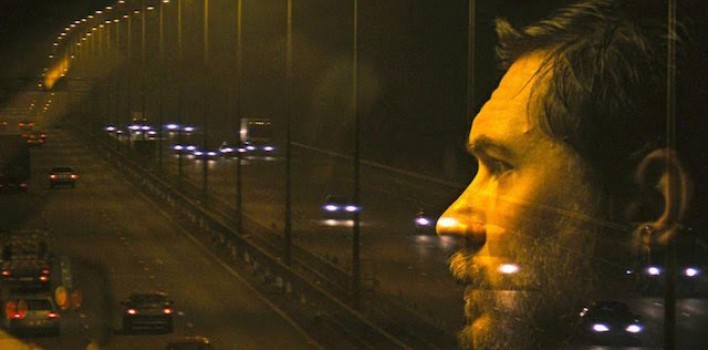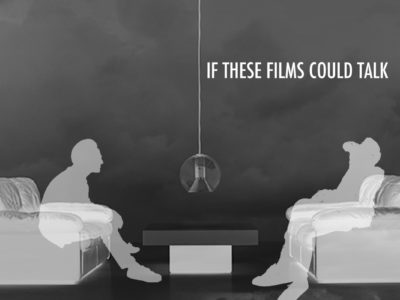Art & Indie Corner| Locke
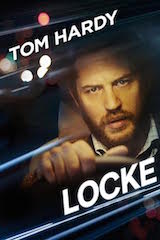 Most film producers would hear the pitch for Locke and probably respond with a great guffaw, “Who would watch a guy in a car for 90 minutes?” In truth, it’s a fair question, but I’m here to tell you it depends entirely on good writing, and who you’ve put in the car.
Most film producers would hear the pitch for Locke and probably respond with a great guffaw, “Who would watch a guy in a car for 90 minutes?” In truth, it’s a fair question, but I’m here to tell you it depends entirely on good writing, and who you’ve put in the car.
Locke is deliciously simple, subtle, yet brimming with symbolism and metaphor. It’s a classic tale of legalism vs. grace, self-righteousness vs. heavenly-righteousness. Ivan Locke is, to all appearances, a good man, perhaps one of the best men. Every person he calls and explains his predicament too is in utter shock. They often say “You’re the last person I would ever expect to…” I have to imagine this creates an immense pressure on a person, to be held to a standard not only by others but by yourself as well. This is where the buildings Ivan Locke creates are not just the icons of his career, but the icons for how he lives his life. Rock solid, firm, a tower of pride.
But the harsh reality is that no one can live that way for long. Human beings are fallen, broken. If we look to our own strength, our own righteousness we will break and fall again, and again. No amount of human goodness or rock solid character can hold on its own for long.
Ivan Locke gets into his car and a nightlong storm begins. Some months in the past, he made a mistake—a grave mistake—which will end up costing him everything. This upright family man, a leader in his industry, had a drunken one night stand that resulted in a pregnancy. The night this story takes place is also the eve of the biggest concrete pour of his career for a building that will be historical in its nature. He suspected he’d have time to do the pour and tell his family the situation long before the child was ever born, but as fate would have it her water breaks early and the child is coming now.
As he drives toward the hospital a couple of hours from his home, he makes a series of phone calls to his co-workers, bosses, family, and to Bethann, the woman in labor with his child. In film school, I was told to keep phone calls and other moments of scene staticity to a minimum, but this film victoriously breaks through those rules like a runner through the tape at the finish line.
Though we never see the people on the other end of the line, it is through the genius of well-written, authentic dialogue that we can imagine them. I found that I could see everything; his home with his kids are watching football (the non-American kind), his co-worker Donal rummaging through offices trying to hold it together, Bethann nervously pacing around her hospital room. This film, in its minimalism, offers us the gift of using our imagination to fill in the gaps. It’s the movie magic experience often lacking from films in our contemporary era.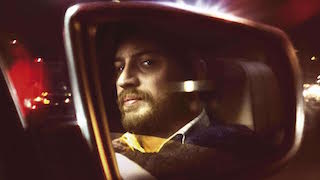
It’s a big job to be the star of a film, you can either make it or break it. Tom Hardy has always had the leading role ability (he is personally on of my favorite actors). However, this film not only proved he could be the star but that he could carry an entire film by himself. Then this past year he went ahead and raised his bar again by playing TWO different lead roles brilliantly in Legend, but that’s a story for another day.
Ivan Locke is a character who is utterly rational, to a fault. He remains cool and collected even in the face of this adversity, at least for a while. He begins this way, but in order for something to transform, to become something new, it must be broken. It’s quite clear from his resolve that Ivan Locke has never truly been broken, perhaps he’s even fought against the idea for most of his life.
Ivan, by definition, was a bastard child. His father never came into his life until he was 23. Ivan saw his father as weak, despicable. The only conversations that do not take place via phone, are those Ivan has with the ghost of his father he imagines sitting the back of his car. His father was a lazy drunk who never owned up to anything, so Ivan made sure he was the opposite. He owns up to everything, even his mistakes. He also repeats a mantra about doing the job yourself and not leaving work for other people. Even when his co-worker Donal has to take over the concrete pour for him, he tells Donal to check everything himself and not leave one step of the process in the hands of anyone else.
Though owning up to your actions, and being a person of integrity, are good qualities, Ivan’s desire to not be like his father roots a self-righteousness, legalistic way of living that his whole world revolves around. He prides himself on a life above reproach, as well as a work ethic above reproach. He’s the best at what he does and takes great pride in his buildings. He believes, no matter what the situation you can make it good. The definitive works-based mentality.
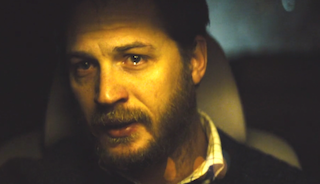 His “one mistake,” sleeping with another woman, is not only out of character, but it’s also the pressure point that causes his entire world to crack. It’s not that this mistake was the worst and most powerful thing he could have possibly done, it simply reveals the flaws and underlying problems that were already there, festering all along. Though his wife can use his adultery as an obvious reason to end their marriage, it’s apparent in their final conversation that she always felt as though she was placed second to Ivan’s work. This mistake revealed rot and brokenness in their marriage completely unrelated to the incident. It took just one mistake, one night, one car ride, to finally break the foundation.
His “one mistake,” sleeping with another woman, is not only out of character, but it’s also the pressure point that causes his entire world to crack. It’s not that this mistake was the worst and most powerful thing he could have possibly done, it simply reveals the flaws and underlying problems that were already there, festering all along. Though his wife can use his adultery as an obvious reason to end their marriage, it’s apparent in their final conversation that she always felt as though she was placed second to Ivan’s work. This mistake revealed rot and brokenness in their marriage completely unrelated to the incident. It took just one mistake, one night, one car ride, to finally break the foundation.
One of the great metaphors of the film is buildings, having a solid foundation and a stature to take pride in. As we know, one crack in a foundation can cause the entire thing to fall. There is a point where Ivan drills a principle into Donal’s head that he must have a certain type of concrete in every truck, for if you mix even a bit of any other type into the foundation, you could destroy it. Our pride, our righteousness really are that fragile. When we look to our own strength and our own understanding, we are always susceptible to mistakes and sin. No one can achieve perfection by their works or deeds, it is only ever through grace…
“There is no one righteous, not even one; there is no one who understands; there is no one who seeks God. All have turned away, they have together become worthless; there is no one who does good, not even one.” Romans 3:9-12
Donal tells Ivan they have God on their side, but Ivan responds “You can’t trust God when it comes to concrete!” He says it with a smile, yet the implication is that Ivan always looks to his own power and understanding. He trusts only himself to get things done, but the weight of that kind of pressure would cause anyone to break.
“Trust in the Lord with all your heart and lean not on your own understanding…” Proverbs 3:5
This pressure is amplified by the sense of feeling trapped throughout the film. He’s trapped because he can’t check the work operation himself. Trapped because his kids are waiting anxiously to watch a football game with him that is getting closer to the end with every minute. Trapped because his only means of communication is via phone where he can be hung up on. He’s even trapped by the rules of the road. There’s a moment where Bethann tells him to hurry, and he replies, “Yes, but there is a speed limit.” Finally, this trapped feeling peaks when he receives a call from the doctor explaining the complication with the umbilical cord being wrapped around the baby’s neck. It is apparent that Ivan feels exactly the way his unborn child does, desperate to be free.
Bethann: “They said the umbilical cord is like a noose. A lifeline and a noose at the same time… isn’t that funny?”
This baby that is on its way is the other key metaphor. The baby represents grace and new life. Though conceived by a mistake, one that hurt so many people and left an entire professional project in a gamble, it is still a new person. Ivan tells the ghost of his father, “I drove in this direction, and there will be a new person when I get there…” In his case it wasn’t just his child he was talking about, it was a prophetic word about himself too. This mistake and the result of all the devastating phone calls he had to make led to brokenness. By rights he deserves nothing good out of this mess, it’s cost him everything he’s known, and yet, GRACE. Grace is both the cause and the solution.
Ivan Locke: “When I left the site just over two hours ago, I had a job, a wife, a home. And now I have none of those things. I have none of those things left. I just have myself and the car that I’m in. And I’m just driving and that’s it.”
Toward the end of his journey, someone he knows calls him “the best man in England” and we the audience can see the resolve in his face. He is saddened because he realizes that this idea of perfection or “best” is not only untrue about him, it is untrue for any of us. The only thing that makes us good that and sets us apart is GRACE. Like one of his beloved buildings, he will have to start over and rebuild his life from scratch. Ivan never gave himself grace, and quite frankly neither did anyone else, but God’s Grace is there whether we accept it or not. Like the birth of a baby, it cannot be stopped no matter how you may resist. The journey in the car was his own womb, a place of growth, and a place of pain, but when he emerges, both he and his new child will have a whole new life to build on.
A solid foundation of grace.


